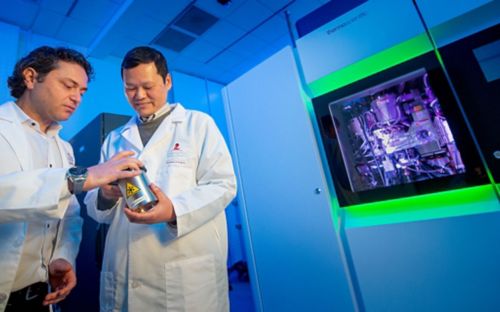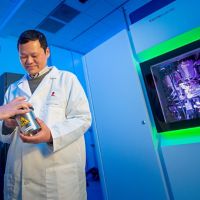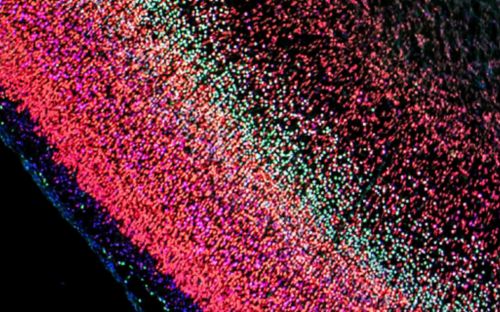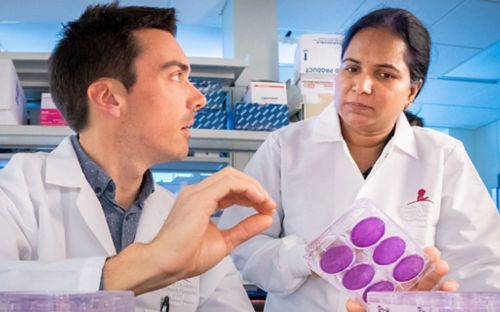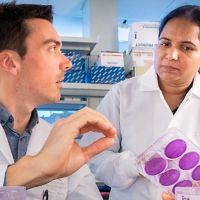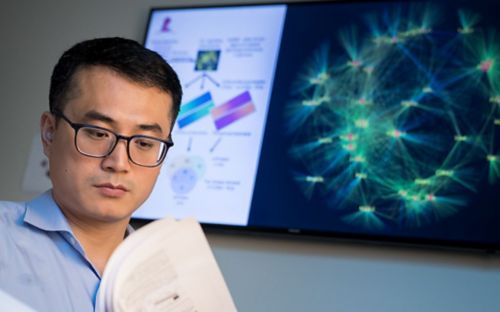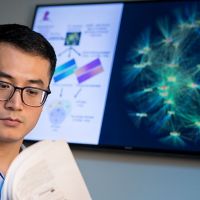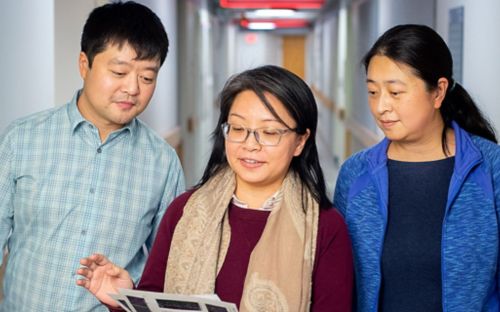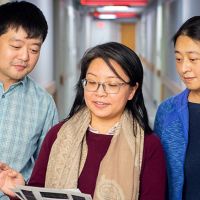St. Jude Family of Websites
Explore our cutting edge research, world-class patient care, career opportunities and more.
St. Jude Children's Research Hospital Home

- Fundraising
St. Jude Family of Websites
Explore our cutting edge research, world-class patient care, career opportunities and more.
St. Jude Children's Research Hospital Home

- Fundraising
Research
Learn about published research as well as leading-edge basic and translational research initiatives from St. Jude laboratories.
Commitment to excellence: Building a world-class Structural Biology Department at St. Jude
Read how this rapidly evolving area of science seeks to change the way we look at the world.
Cell Seek provides a path to understanding the cellular origins of pediatric brain tumors
What if scientists shared data about brain development to find the origins of brain tumors and disorders? These scientists did, and it changed everything.
10,000 reasons St. Jude Cloud can help advance science
10,000 reasons St. Jude Cloud can help advance science
Medulloblastoma therapy may get better thanks to ‘key’ technology
In testing a new treatment for a deadly brain tumor, read what these researchers did to figure out how to make exact duplicates of the cancer.
Innate immunity: the body’s first line of defense against a dangerous fungus
Innate immunity is your body’s first line of defense. What happens when it’s weakened? Researchers are using this common fungus to find out how to help.
Medulloblastoma and microirradiation: Tiny treatments for the most common malignant pediatric brain tumor
Medulloblastoma may soon be treated by a microirradiator - a machine the size of two refrigerators that beams radiation down to half the width of a credit card.
Translational research: Finding the connection between what we do and who we help
It's a rare day you get to see translational research benefit others—I've spoken to cancer patients and seen first-hand how research saves children's lives.
Computational algorithm fix restores power to research
A computational algorithm helps analyze large data sets at the expense of computing power. This small fix to a free program brings big data back to small labs.
Neural development: Unlikely partners work together to make your brain: when they don’t get along, it could lead to rare and devastating disease
In neural development, two essential molecules partner to build the human brain — but when things go awry, it could lead to brain cancer.
Learn the basics of CAR T-cell therapy and how it is being used in the SJCAR19 clinical trial at St. Jude
Learn the basics of CAR T-cell immunotherapy and how it is being used in the SJCAR19 clinical trial for acute lymphoblastic leukemia.
